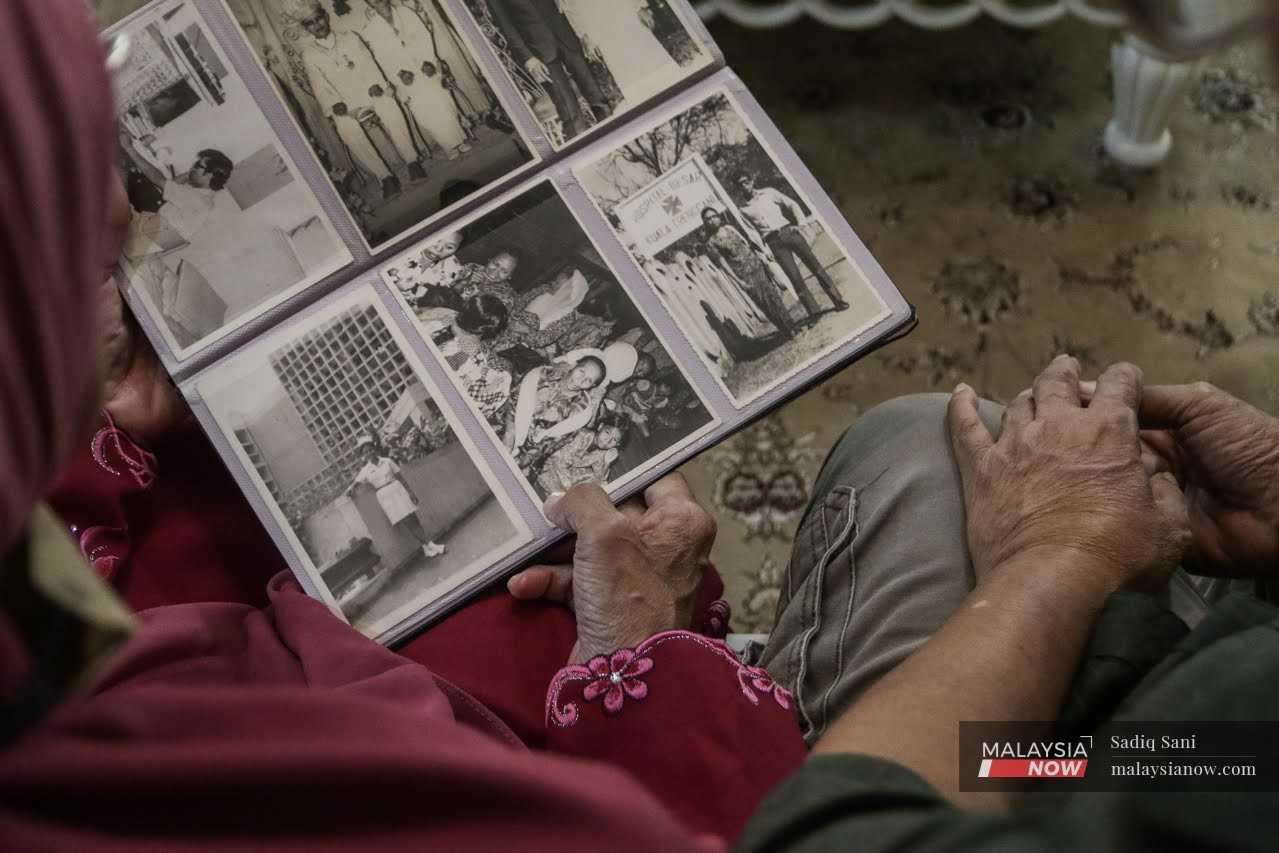Life before Merdeka, and the value of freedom
Senior citizens look back at life before Malaysia achieved independence 65 years ago.
Just In
In a small flat in the capital city, 85-year-old Krishnan Nair rummages through his cupboards to find a bundle of photographs, faded and yellow with age.
Some of the photos, at 70, are nearly as old as he is. At the back of each picture, written in pen, is the location of the shot and the names of those smiling for the camera.
Looking at them, Krishnan smiles as well, recalling life at that time before Malaysia achieved independence in 1957.
As a retired police officer, it was a fight that he experienced up close.
Krishnan served with the police force in Malaya during the British occupation. Much of his early life was spent under British and then Japanese rule.

His childhood was spent in Jalan Junid, Muar, in Johor. At that time, the village where he lived had only a few houses and a handful of small shops that sold groceries and basic necessities.
Each day, he would walk to school with his older brother and sister. At night, the villagers would pick the yams they grew in their gardens and boil them for dinner.
"We always had beriberi disease," he said. "We would visit the doctor, and he would press our hands and our legs and say that we were malnutritioned.
"Because we only ate yams."
There was also the danger of malaria, which spread throughout the area when Krishnan was about seven years old.
"My father died of malaria," he said. "My older brother told my mother not to worry, that he would take care of the family.
"But the next day, he died of malaria, too. My mother was so sad."

Nevertheless, for all its hardships, Krishnan, who now lives in Cheras, Kuala Lumpur, has fond memories of his childhood.
He said there was harmony, growing up under British rule.
He recalled roaming about with his friends in Muar and having picnics at popular spots, regardless of race, religion or age.
He said things changed when the Japanese army entered Malaya.
After that, he said, people began living in fear, thinking only of their own safety.
Whenever they crossed paths with a Japanese soldier, he said, they had to stop and bow as a gesture of respect. Otherwise, the soldier would hit them with the butt of his gun, regardless of their sex or age.
"There were men who were pulled by the Japanese into lorries," Krishnan said. "No one ever knew where they were taken, but they took women, too.
"People said the soldiers took them to work as labourers on project sites."
Afraid that his sister would be taken, too, his mother told her to wear men's clothes.
Even today, Krishnan has no idea what befell his friends who were taken away by the Japanese soldiers. Once they were taken, he never saw them again.
Village life
In another flat unit, an elderly couple turned the pages of their photo album, taking a similar trip down memory lane.
Maznom Mohd Yusof grew up in Kampung Tanah Merah, Kuala Kangsar, during the British occupation.

Now 75, she was once the head nurse at Hospital Kuala Lumpur. Looking back on her childhood and teenage years, she said she had always been very active.
After school, she would help her mother sell rice wrapped in banana leaves at a stall near their house.
During school holidays, she and her friends loved nothing more than to splash about in the river.
"If we saw British soldiers, we would stop and watch them pass," she said. "Sometimes when they saw children, they would throw us chocolate.
"Everything was okay. The villagers all knew each other and would greet one another whenever we met."
As children, she said, neither she nor her husband Mokhtar Ishak really understood the meaning of independence.
"On Aug 31, there was a celebration at school," she said.
"We ate and sang songs together. It was so much fun. And we felt proud because our teachers told us that our country was free."
Krishnan however has very different memories of the first Merdeka Day that Malaysia ever marked.
At that point, he was stationed in Tangkak, Johor. It was still during the Malayan Emergency of 1848-1960 as the communist threat continued in a number of states.
"I knew it was Merdeka," he said. "Everyone knew it was Merdeka.
"But we had to keep working, to monitor and scout through the woods to keep the communists in check."
Today, he, Maznom and Mokhtar are grateful for the progress the country has seen since then.
"When I tell my children my stories about what it was like before, they laugh and say they don't believe me," Krishnan said.
"But when I show them my pictures, they feel proud. What they have today cannot be compared with the hardships we experienced before.
"I'm proud to have fought for my country's independence, and I'm proud that it's still safe.
"Many of my friends went to fight with me but they died – they never returned. The younger generation needs to know the value of such freedom."
Subscribe to our newsletter
To be updated with all the latest news and analyses daily.
Most Read
No articles found.
